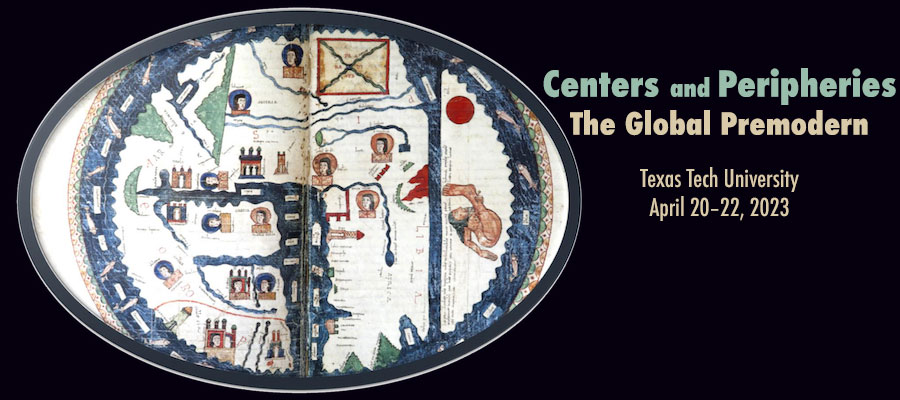Centers and Peripheries: The Global Premodern, Texas Tech University. April 20–22, 2023
The Medieval and Renaissance Studies Center at Texas Tech University invites proposals for papers and sessions for an international conference on “Centers and Peripheries: The Global Premodern.” Recent decades have seen the study of the premodern past expand to include diverse geographies, peoples, objects, and texts, revealing parallels and interconnections across the globe, and challenging people to re-think how the more distant past continues to inform the present. These developments have challenged the assumed centrality of Europe and Western cultural norms in narratives of the premodern past by foregrounding interconnection and exchange with constituencies historically viewed as peripheral or subaltern.
Featuring keynote speakers Jonathan Hsy (George Washington University) and Ulinka Rublack (University of Cambridge), this conference will gather scholars in person from across disciplines and across the world to reconsider the spatial and temporal borders of the premodern past (here understood broadly as the period before approximately 1800 CE). The Medieval and Renaissance Studies Center encourages scholars working on premodern topics in any geographical domain, from any disciplinary perspective, to submit proposals for full panels or individual papers.
Papers are invited on topics including but not limited to:
- the movement of people, things, and ideas across premodern spaces
- intersections of race, ethnicity, gender, and dis/ability
- race and religions
- health and the human body
- borders & border-crossings
- materiality & material culture
- travel: pilgrimages or crusades in literature and/or history
- environmental & animal studies
- translation studies
- manuscript studies
- mapping
- public premodern studies: making the distant past speak to the present
Submissions from graduate students, early career scholars, and postgraduate students, as well as collaborative abstract submissions, are particularly welcome.
